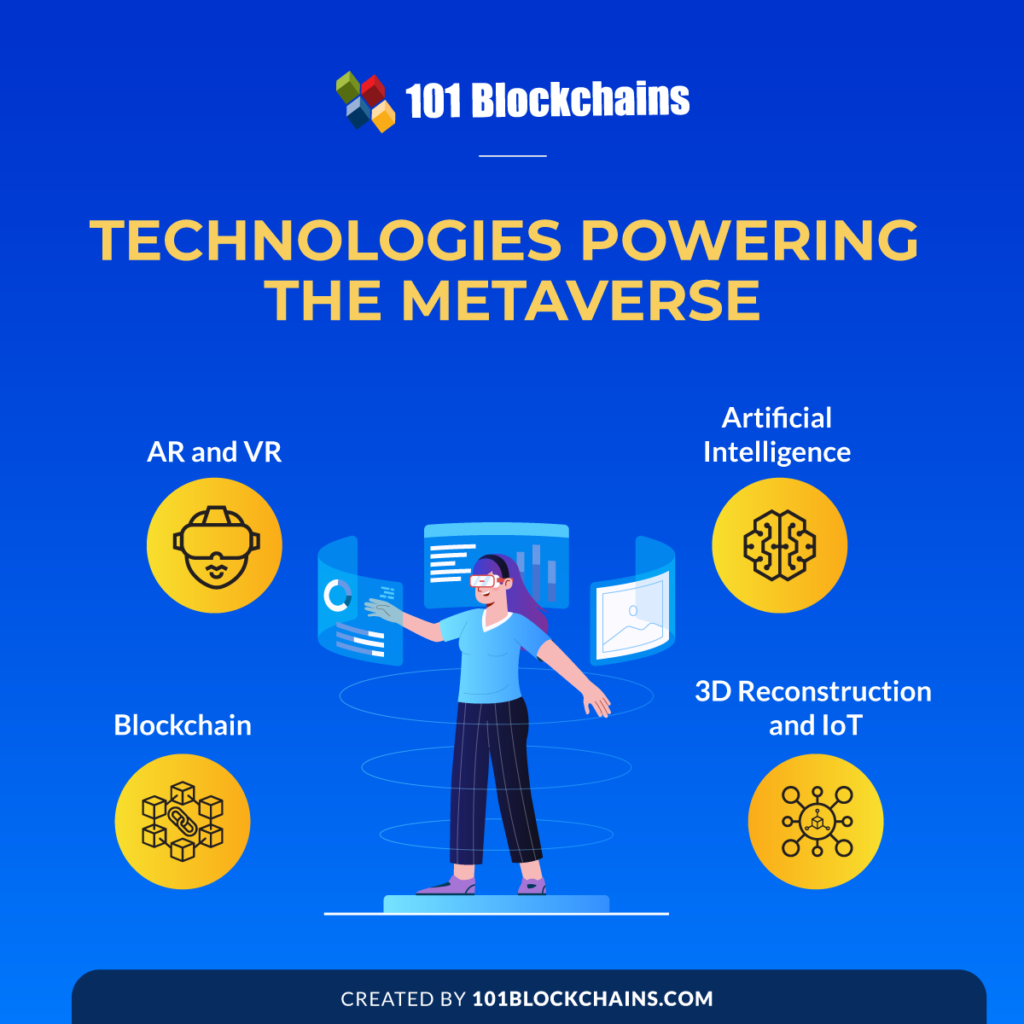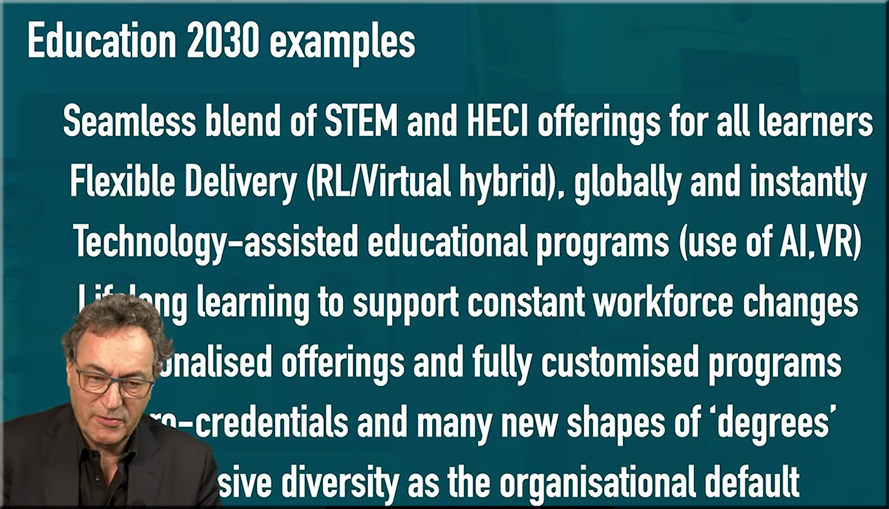Key Technologies That Power The Metaverse — from 101blockchains.com by James Howell
Companies are making serious money with AI — from sloanreview.mit.edu by Thomas Davenport and Randy Bean
Excerpt:
Just a few years later, things are beginning to change. In the 2022 survey of senior data and technology executives by NewVantage Partners (where Randy Bean is CEO and cofounder, and Tom Davenport is a fellow), 92% of large companies reported that they are achieving returns on their data and AI investments. That’s up markedly from 48% in 2017. The same percentage (92%) said that they are increasing investments in data and AI, equaling last year’s percentage.
China Is About to Regulate AI—and the World Is Watching — from wired.com by Jennifer Conrad
Sweeping rules will cover algorithms that set prices, control search results, recommend videos, and filter content.
Excerpt:
On March 1, China will outlaw this kind of algorithmic discrimination as part of what may be the world’s most ambitious effort to regulate artificial intelligence. Under the rules, companies will be prohibited from using personal information to offer users different prices for a product or service.
The sweeping rules cover algorithms that set prices, control search results, recommend videos, and filter content. They will impose new curbs on major ride-hailing, ecommerce, streaming, and social media companies.
9 emerging tech trends IT leaders need to watch — from enterprisersproject.com by Stephanie Overby
As CIOs focus on enabling their businesses for the future, these key technologies will be front and center in 2022 and beyond
Excerpt (emphasis DSC):
Keeping on top of the newest new thing is fast becoming a tall order. At the same time, it’s never been more important to IT and enterprise success. More than two-thirds (68 percent) of IT leaders told IEEE that determining what technologies are needed for their company in the post-pandemic future will be challenging.
…
Looking at 2022 and beyond, CIOs charged with outfitting hybrid workplaces, enabling more resilient and flexible supply chains, and continuing the digital transformation march will be eyeing multiple new capabilities in concert. “Rather than single technologies, CIOs will have to focus on confluence of these to drive transformation,” says Yugal Joshi, who leads Everest Group’s digital, cloud, and application services research practices.
Also from enterprisersproject.com, see:
- What is digital transformation?
- Digital transformation: 4 ways to accelerate your progress in 2022 — by Rajan Sethuraman
To remain competitive in 2022 and beyond, businesses must accelerate their digital initiatives to support critical new technologies. Consider these four key strategies.
What does it mean to have a team when no two members are working in the same room? In one of Gartner’s more eye-popping predictions for 2022, they stated that “by 2024, 30% of corporate teams will be without a boss due to the self-directed and hybrid nature of work.”
Holograms? Check! Now what? — from blog.webex.com by Elizabeth Bieniek
Excerpt (emphasis DSC):
Two years ago, I wrote about the Future of Meetings in 2030 and hinted at an effort my team was building to make this a reality. Now, we have publicly unveiled Webex Hologram and brought the reality of a real-time, end-to-end holographic meeting solution to life.
With Webex Hologram, you can feel co-located with a colleague who is thousands of miles away. You can share real objects in incredible multi-dimensional detail and collaborate on 3D content to show perspective, share, and approve design changes in real-time, all from the comfort of your home workspace.
As the hype dies down, the focus on entirely virtual experiences in fanciful environments will abate and a resurgence in focus on augmented experiences—interjecting virtual content into the physical world around you for an enhanced experience that blends the best of physical and virtual—will emerge.
The ability to have curated information at one’s fingertips, still holds an incredible value prop that has yet to be realized. Applying AI to predict, find, and present this type of augmented information in both 2D and 3D formats will become incredibly useful.
From DSC:
As I think of some of the categories that this posting about establishing a new kind of co-presence relates to, there are many relevant ones:
- 21st century
- 24x7x365
- 3D
- Audio/Visual (A/V)
- Artificial Intelligence (AI)
- Cloud-based
- Collaboration/web-based collaboration
- Intelligent tutoring
- Law schools, legal, government
- Learning, learning agents, learning ecosystems, Learning from the Living [Class] Room, learning spaces/hubs/pods
- Libraries/librarians
- K-12, higher education, corporate training
- Metaverse
- Online learning
- Telelegal, telemedicine
- Videoconferencing
- Virtual courts, virtual tutoring, virtual field trips
- Web3
AI Foundation Models for the Rest of Us — from future.a16z.com by Elliot Turner
Excerpt:
While 2012’s state-of-the-art systems could be trained on a $700 video game card, today’s state-of-the-art systems – often referred to as foundation models – likely require tens of millions of dollars in computation to train.
The emergence of these massive-scale, high-cost foundation models brings opportunities, risks, and limitations for startups and others that want to innovate in artificial intelligence and machine learning.
Tip of the week: Text extraction tools — from advisorator.com by Jared Newman
Excerpt:
With the launch of MacOS Monterey last fall, Apple introduced a neat feature called Live Text, which lets you highlight and copy text directly from images, both in Safari and in system apps such as Photos and Quick Look. (It also works on iOS.)
But what if you want to grab text from images in other apps or web browsers? And what if you don’t use MacOS at all? Luckily there are several other text extraction tools that can help.
As seen/accessible from this page.
A brief insert from DSC:
Another futurist Thomas Frey has some thoughts along this same line.
#Canada #education #future #trends #careerdevelopment #change #paceofchange #automation #robotics #education #AI #learnhowtolearn #unlearn #learningecosystems #lifelonglearning #endofroutine #experientiallearning
Machines are for answers. Humans are for questions.
Also relevant/see:
- Next-Gen Skills Essential To Fill In The Curriculum Gap For Modern World Education — from edtechreview.in by Ravi Bhushan
- 5 tips to avoid “foresight burnout” — from thefuturesschool.com
The Trends Driving Educational Technology’s Expansion and Growth — from realclearmarkets.com by Rick Amato; with thanks to Michael Moe for this resource
Excerpt:
According to the EdTech Market: Global Industry Analysis, Trends, Market Size, and Forecasts up to 2027 report from ResearchAndMarkets.com, the global educational technology market was valued at around $85 Billion in 2021 and is expected to reach approx $218 billion in 2027, growing with a CAGR of around 17% during the forecast period from 2021-2027. When a tech sector is expected to more than double its size over the next few years, it means the rest of us need to pay attention.
22 Augmented Reality Trends to Keep an Eye on for 2022 — from linkedin.com by Tom Emrich
Excerpts:
#1 Metaverse remains at peak hype as the next iteration of the Internet feels so close but is actually much further away
#2 The smartphone continues to become an even more powerful augmented reality machine with advancements in chips, displays and connectivity
#3 Early consumer smartglasses reinforce the need for smartphones rather than attempt to replace them
The metaverse is defined differently by different people but for me, the metaverse is an aha moment. It is a realization by industry that the next wave of computing is comprised of a stack of emerging technologies (including blockchain, AI, IoT, AR and VR) that will all work together to create a fundamental shift in our relationship with technology.
Kudos @amylameyer and @tomemrich for an awesome conversation about #XR trends to look for in 2022!
Watch on demand on at https://t.co/iDUt5u5WQR(if new – first register at https://t.co/NGOBSHi3Bh) #AWENiteSF https://t.co/eqc8wbThKV
— Ori Inbar (@comogard) February 1, 2022
Also see:
- Augmented Reality is the Future of Online Shopping — from time.com by Megan McCluskey
Both of the items below are from Sam DeBrule’s Machine Learnings e-newsletter:
- AI can predict signs of a heart attack within a year — from a routine eye test — from studyfinds.org
Excerpt:
A team from the University of Leeds believes this AI tool opens the door to a cheap and simple screening program for the world’s number one killer. Their tests find the computer can predict patients at risk of a heart attack in the next 12 months with up to 80 percent accuracy. - Opinion: Facial-recognition technology is one of the biggest threats to our privacy — from marketwatch.com by Jurica Dujmovic
Excerpt:
Companies including Apple and Facebook, and governments worldwide, can misuse our facial images and unwittingly pass them on to hackers and other bad actors
Also see:
- It’s Not Just the IRS—the US Government Wants Your Selfies — from wired.com by Tom Simonite
A controversial new program that uses facial recognition is part of a national effort to verify identities and reduce fraud.
The biggest tech trends of 2022, according to over 40 experts — from fastcompany.com by Mark Sullivan
Startup founders, Big Tech execs, VCs, and tech scholars offer their predictions on how Web3, the metaverse, and other emerging ideas will shape the next year.
We asked startup founders, Big Tech execs, VCs, scholars, and other experts to speculate on the coming year within their field of interest. Altogether, we collected more than 40 predictions about 2022. Together, they offer a smart composite look at the things we’re likely to be talking about by this time next year.
Exemplar of successful implementation of tech in schools — from donaldclarkplanb.blogspot.com by Donald Clark
Excerpts:
It was impressive to find a school network that took technology as seriously as Curro, in South Africa. They had invited me to give a keynote on AI for Learning, based on my book and experience but I hung around as the teacher sessions were so damn good. This is what I learnt, as I think it is a recipe for success.
…
This was the big surprise. There were glowing testimonials from teachers about the power of adaptive learning, using AI, to personalise learning for students. It was described as a ‘gamechanger’ by the teacher who presented, with clear targeting, so that efficient and relevant, individual interventions could be made for students. It was clear that they knew why they wanted this technology, had implemented it well and were using teacher feedback to spread the word internally.
I was giving a talk as part of that process. The day’s activities were under the banner of ‘Imagining 2022’. It’s hard enough to Imagine what any year will bring these days but it was clear that this was a learning organisation, willing to learn from their mistakes and make the effort to plan forward.
Also see:
Feds’ spending on facial recognition tech expands, despite privacy concerns — from by Tonya Riley
Excerpt:
The FBI on Dec. 30 signed a deal with Clearview AI for an $18,000 subscription license to the company’s facial recognition technology. While the value of the contract might seem just a drop in the bucket for the agency’s nearly $10 billion budget, the contract was significant in that it cemented the agency’s relationship with the controversial firm. The FBI previously acknowledged using Clearview AI to the Government Accountability Office but did not specify if it had a contract with the company.
From DSC:
What?!? Isn’t this yet another foot in the door for Clearview AI and the like? Is this the kind of world that we want to create for our kids?! Will our kids have any privacy whatsoever? I feel so powerless to effect change here. This technology, like other techs, will have a life of its own. Don’t think it will stop at finding criminals.

This is a snapshot from the series entitled, “Person of Interest.“
Will this show prove to be right on the mark?
Addendum on 1/18/22:
As an example, check out this article:
- Tencent is scanning kids’ faces to stop them using older relatives’ gaming accounts to get around China’s gaming restrictions — from businessinsider.com by Weilun Soon
Tencent is set to ramp up facial recognition on Chinese children who log into its gaming platform. The increased surveillance comes as the tech giant caps how long kids spend gaming on its platform. In August 2021, China imposed strict limits on how much time children could spend gaming online.
DC: The staff from Teaching & Learning Centers as well as the IT/AV staff would likely collaborate on creating/maintaining this type of database.#teachingandlearning #AV #IT #AI #NLP #highereducation https://t.co/Vs3RQJwrrH
— Daniel Christian (he/him/his) (@dchristian5) January 13, 2022













